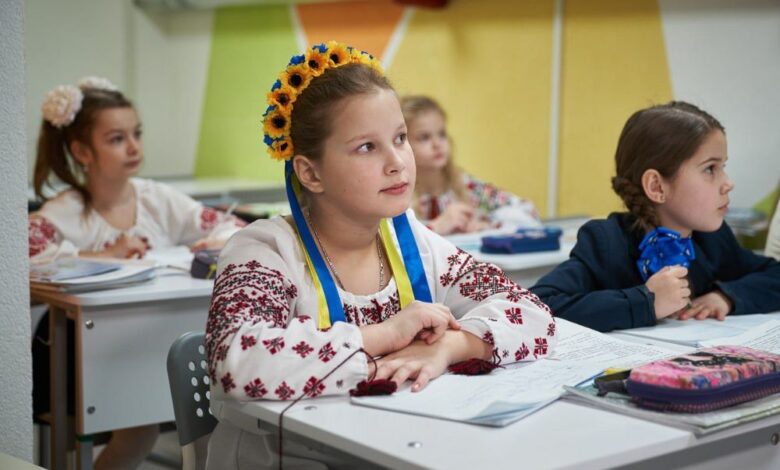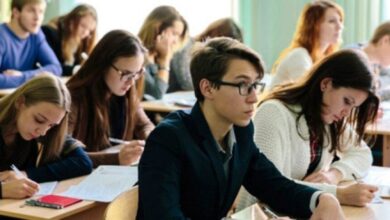The Ministry of Education and Science told about myths related to the “School Offline” initiative

The Ministry of Education and Science of Ukraine announced the main goal of the new “School Offline” initiative, which is to return children to full-time education. If this is not possible due to security reasons or other circumstances, the initiative provides for a significant improvement in the quality of distance education. However, the idea caused a lot of criticism from the public. In particular, concerns have arisen over the decision to resume face-to-face education during wartime, when shelling and air raids continue, which could threaten children’s safety. Also, the situation with access to Ukrainian education for children who are in the occupied territories or who have gone abroad with their parents remains difficult.
The newly appointed Deputy Minister of Education and Science, Nadiya Kuzmychova, who deals with issues of school education, voiced six myths related to the “School Offline” initiative. This raises questions among parents, because many do not understand whether they should be worried about these innovations and how they will affect the educational process.
What is “School Offline”?
The main goal of the policy is to return children to school desks and establish clear rules for the organization of distance education. It is important that the educational process should be equally organized for all students in a class in which at least 20 children should study. Today, classes can include different groups of students: those who study full-time, temporarily displaced persons, children abroad and in the occupied territories. From September 1, 2025, most students, including those who are temporarily displaced, plan to study face-to-face. Those who will not be able to attend school due to circumstances will move to new remote classes. Children abroad will learn only the Ukrainian studies component, while students from the occupied territories will be able to study according to individual programs.
Myth 1: “School is offline” and order #850 are the same thing
Draft Order No. 850, which was prepared in June 2024, tried to return children to schools, but caused a lot of discussion. However, this document was never approved. The “School Offline” policy is based not only on one order, but on a series of documents regulating the educational process under martial law.
Myth 2: “All children will be forced to study face-to-face, even in the frontline regions”
In fact, face-to-face training will be possible only where security conditions allow. For example, in the Kharkiv region, different regions have different levels of security, so the decision to resume full-time education will be made based on specific conditions.
Myth 3: “Distance education will be banned”
This is not true, because the distance form of education will continue to exist. The Ministry of Education and Culture is working on normalizing distance education so that it is of high quality and accessible to those who cannot attend educational institutions.
Myth 4: “Children from the occupied territories and abroad will remain without Ukrainian education”
This is also not true. Children abroad will learn Ukrainian subjects remotely, and students from the occupied territories will study according to individual programs.
Myth 5: “The policy will lead to a reduction in teachers”
There are fears that teachers in the occupied territories and in the frontline areas may lose their jobs due to the reduction of classes. However, the deputy minister explained that even in such regions, pedagogical patronage can be introduced, which will help preserve the rates for teachers.
Myth 6: “School Offline” will lead to school closures in some communities”
The policy does not involve the liquidation of schools. It is only about the temporary suspension of the activities of certain institutions for the duration of the war, but after the victory they will work again.
All these myths indicate that the upcoming changes cause anxiety among many students, parents and teachers. Therefore, to reduce myths and misunderstandings, the Ministry of Education needs to communicate more actively with the public.





